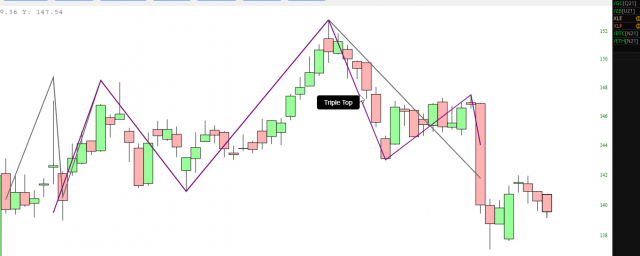As we've been at pains to point out over the years: "Humans are so good at pattern recognition that they can see patterns that aren't even there!"
I’d like to tell you about an important failure.
In recent weeks, I have been endeavoring to create automatic pattern recognition. This has been attempted by many years by many organizations, most of them vastly better funded than mine, and they’ve all failed. I’ve spent a rather large amount of time on this.
In order to keep my risk low, I decided to start off by using the API of what is purportedly the very best pattern recognition system out there. We integrated it with SlopeCharts, and I started to thumb through the results. Here we have what their system considers to be a Triple Top:
And a Triangle:....
....MORE, including a Blackadder cameo
The Pattern Seekers — inside the mind of the most inventive humans
Simon Baron-Cohen makes a case for neurodiversity, arguing that autism confers advantages that we should value
When you’re on a plane, do you think about its aerodynamics? When you look at a mountain, do you think about how precisely it was formed? Do you always notice how the music you are listening to is structured? If the answer to all these is yes, you could be what Simon Baron-Cohen calls a hyper-systemiser.People who are that way inclined have a hard-wired compulsion to seek out patterns in their surroundings, following a simple “if this and that then this” algorithm. It is through this process of endless iterative discovery and experimentation that such minds eventually stumble upon new inventions, pushing human evolution forward, and in many cases changing the world forever. Today, these nerdy brain types are commonly associated with autism. But while society views that condition as a disorder, Baron-Cohen — a clinical psychologist based at the University of Cambridge — argues that its connection with systemising techniques and influence on human invention should not go unnoticed.“Those humans who had minds with a systemising mechanism in overdrive were — and are — central to the story of invention,” he writes....
